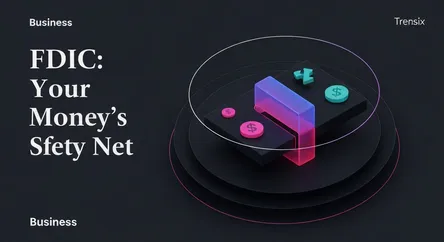Business
FDIC: Your Money's Safety Net

Discover the FDIC, the U.S. agency insuring your bank deposits. Learn how it protects your money and maintains stability in the financial system.
What is it?
The Federal Deposit Insurance Corporation (FDIC) is an independent U.S. government agency that protects depositors against the loss of their insured deposits if an FDIC-insured bank or savings association fails. Established in 1933 after the Great Depression, its primary mission is to maintain public confidence and stability in the nation's financial system. FDIC insurance is backed by the full faith and credit of the United States government and covers deposit accounts, including checking, savings, and certificates of deposit (CDs), up to the standard limit of $250,000 per depositor, per insured bank, for each account ownership category.
Why is it trending?
The FDIC often trends during periods of economic uncertainty and especially following high-profile bank failures. Recent events, such as the collapse of major regional banks, have thrust the FDIC back into the public consciousness. This heightened awareness leads people to research the agency, verify their bank's FDIC insurance status, and understand the coverage limits for their savings. News about the FDIC taking control of failed institutions and ensuring depositors are made whole generates significant public and media interest.
How does it affect people?
For the average person, the FDIC provides critical peace of mind. It assures them that their hard-earned money is safe, up to the insurance limit, even if their financial institution collapses. This prevents widespread panic and bank runs that could destabilize the entire economy. For individuals and businesses with deposits exceeding the $250,000 limit, these events serve as a crucial reminder to manage their funds across multiple insured banks or different account ownership categories to ensure full protection.